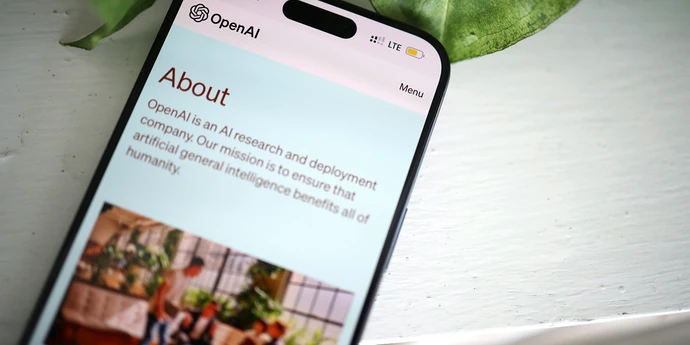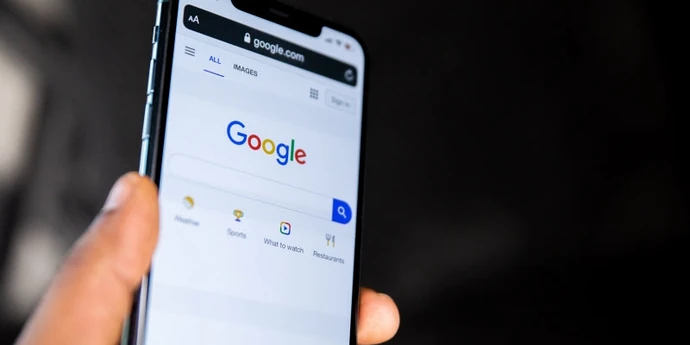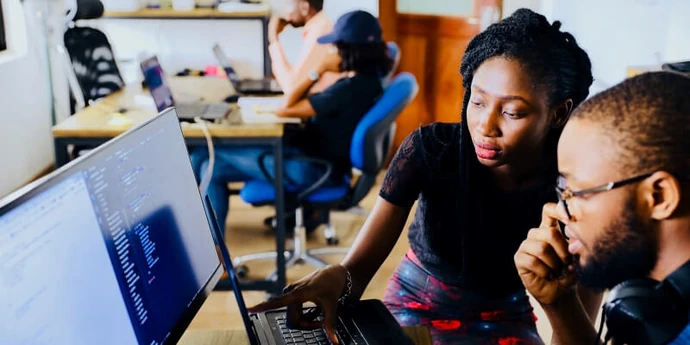Have you been rejected after interviewing at Google? If so, consider this: we know lots of candidates who made it into Google on their second, third, or even thirty-ninth attempt!
If you’ve been rejected at Google but still want to reapply, then this article’s for you. To put it together, we gathered insights from insiders and reviewed reports of real candidates who’ve had the same experience as you.
We’ll dive into Google’s rejection process and the reasons the company may have rejected your application.
We’ll also walk you through a strategy to help you ace your Google interview once you’re ready to reapply.
- Google’s rejection process and timeline
- Why has Google rejected your application?
- What happens if you fail a Google interview?
- You got rejected from Google - here’s what to do next
Let’s get started!
Click here to book a coaching session with a Google ex-interviewer
1. Google’s rejection process and timeline↑
There are four stages in the Google recruitment process where candidates may get rejected. Let's look at each one in turn.
1.1 Rejection at the resume screening stage
You apply via the Careers page or by emailing a Google recruiter, and you don’t hear back or get a rejection email.
What’s happened? A Google recruiter has evaluated your resume and thinks you might not have enough chance to land a role. Thus, they might think it won’t be worth giving you a call.
You may or may not get an automated rejection email. The truth is, individual recruiters receive so many applications that they simply don’t have time to reply to everyone.
If they do get back to you (with a rejection or an invitation to move forward), it might take them 48 hours to a week.
For the same reason, it's difficult to get feedback or learn specifically why Google has rejected your application at this stage.
If this is the case for you, you might want to polish your resume for Google and your target role. Below is a list of our resume guides that you might find useful:
- Google resume tips
- Tech resume guide
- Software engineer resume guide
- Product manager resume guide
- Engineering manager resume guide
- Machine learning engineer resume guide
- Technical program manager resume guide
To boost your chances of getting noticed, consider booking a resume review with one of our ex-Google recruiters. They can help you tailor and fine-tune your resume to stand out the next time you apply.
1.2 Rejection at the recruiter screen stage
The recruiter called you for a chat about your experience, motivations, etc., and then they decided not to take it further. You should get a rejection email from them letting you know this.
If you've not heard anything for a couple of weeks after the initial chat, email your recruiter asking for an update.
1.3 Rejection at the phone screen stage
After your phone screen with a hiring manager or a peer, your recruiter will send you an email to let you know if you’re moving forward to the next stage.
The recruiter and hiring manager are in charge of making this decision.
Even if you get a rejection email, your recruiter might not give any reason why your Google application has been rejected at this stage.
If so, feel free to ask for feedback. Skip to Section 3.2 for tips on how to ask for one.
1.4 Rejection at the final interview loop stage
After you’ve gone through your final interview loop, your recruiter will gather your interviewers’ feedback forms along with your resume and initial phone screen result into a packet. This packet will then be sent to a third-party hiring committee for objective review.
Your recruiter should email you to inform you that your candidacy is with the hiring committee (or not!) within a week of your last interview.
The hiring committee decides whether you're a hire or no hire.
An exception to this is if the feedback from your onsite interviewers is generally not positive. In this case, your recruiter and hiring manager may decide not to send your candidacy to the hiring committee.
They will then schedule a call with you once a decision has been reached.
Unfortunately, Google recruiters are instructed not to give feedback on why they’ve rejected your application.
However, there IS a way you can get some feedback, as we'll show you in Section 3.2.
2. Why has Google rejected your application?↑
If you've been rejected at any stage of Google's hiring process, there's a very high chance that it's down to one or a combination of the following reasons:
2.1 You displayed insufficient role-related knowledge and experience (RRK)
If you think that a lack of experience or role-related knowledge (RRK) let you down, we recommend that you wait 12-18 months before applying to a similar role at Google. That way, you've got time to build up the experience and knowledge that you were lacking.
To maximize your progress before you reapply, consider working with one of our career coaches. A career coach can help you create an actionable plan for your next career move. Click here to find out more about career coaching.
And if you think it’s the right move for you, book a 1-to-1 product management coaching session or engineering coaching session with one of our expert coaches.
2.2 You didn't sufficiently demonstrate "Googleyness" or leadership
Google seeks candidates who embody Googleyness, or what they believe are essential traits fundamental to thriving at Google.
These can be slightly hard to define. Therefore, it's hard to know if you demonstrated them strongly enough during your interviews.
If you’re applying for a senior-level position, one reason you might have failed this interview is that you lack the concrete leadership experience expected at your level.
Read our guide to Googleyness and leadership interviews to learn more about this topic and how you can improve on your next interview.
2.3 Your interview game wasn't up to scratch
If you’re highly qualified but still failed your Google phone screen or interview loop, it could be because you haven’t properly prepared.
Remember, interviewing is a skill in itself. Being great at your job is not enough; you need to be great at interviews as well.
For example, if you're an engineer, coming up with a great system design or solving a coding problem on your own is not enough.
You need to talk the interviewer through your thought process, know how to ask clarifying questions, and listen well to feedback and hints as you work through a problem. All while displaying a strong "engineering instinct".
And then there's the time element. You could do everything right, but if it takes you thirty minutes and other candidates got there in ten, that could very well work against you.
Or perhaps what felt like a solid answer was, on reflection, lacking in code quality: poor structure, too superficial, or didn't consider the relevant trade-offs.
Suffice it to say, there's a lot you need to get right in interviews. Not only do you need to demonstrate your expertise; you also need to show your communication and collaboration skills.
The good news is that, with some effort, you can rectify this. You just need to prepare better. Feel free to skip to Section 4 for tips.
2.4 You did well, just not as well as other people
Google is extremely picky about its hires, so you might have performed well in your interviews and yet still get rejected.
Google’s hiring philosophy is that it would rather miss out on a great candidate than hire a false positive - i.e., a candidate who looks good on paper but may turn out to be mediocre or toxic.
In borderline cases, "insufficient enthusiasm from interviewers" is the most common reason for rejection. So you might have done well across the board, but not quite well enough to get a "strong hire" rating.
If this is the case, booking coaching sessions with our team of Google ex-interviewers can help you go from a "leaning hire" to a "strong hire".
Of course, it's hard to know for sure which of the reasons above apply to you, which is why getting feedback is so important in helping you know what to work on. We’ll get into that in our next section.
3. What happens if you fail a Google interview?↑
In this section, we’ll answer some of the most frequently asked questions about what happens if you get rejected by Google.
Let’s go.
3.1 Will your Google recruiter send a rejection email or call to reject?
The short answer is: it depends on the recruiter.
In some cases, they send a standard rejection email where they might say something like:
“Although this role didn't work out, we may contact you if we come across another opening that we think could interest you and may be a good match for your skills and experience.”
Quite a few candidates have been invited to apply for job opportunities that match their expertise, but it’s not a promise.
In other cases, they might schedule a call to say you’ve been rejected. During the call, they might share your interview ratings, or they might give you feedback - neither is standard practice, but they happen.
3.2 Can you ask for feedback on your rejection from Google?
Like most large corporations, it’s not standard practice for Google to offer feedback to candidates that they’ve rejected. This is to minimize the potential for being sued.
However, your recruiter may be able to give you some feedback if you ask them the right questions. Bob See (ex-Google principal recruiter) gives some great advice on how to do this, which we've summarized here:
Instead of asking the recruiter directly why you were rejected, allow them to be less explicit.
Say that you'd like to study ahead of reapplying and ask them which areas they think you need to improve on. Listing the topic areas you interviewed on may make it easier for them to pick one.
For example, if you're a software engineer, you could say:
"I'd like to do some studying before reapplying again, and I'm trying to determine where I should best devote my energies. Do you have any thoughts on what I should focus on most? Coding? Algorithms? System design? Leadership?"
This allows the recruiter to honestly identify the area(s) you were weaker in, without going against the "no rejection feedback" protocol.
Even if you don't plan on re-applying to Google, we strongly recommend you try and get this feedback. It will be very valuable next time you're preparing for an interview at any company.
3.3 Can I apply to Google after rejection?
Absolutely. In fact, if you do get a rejection email or call from Google, your recruiter might inform you when you can submit another application.
That’s because Google actively encourages candidates to reapply. It knows that it rejects good candidates all the time.
How long should you wait? Google says you can reapply after 90 days. But they advise gaining at least 12 to 18 months of experience to increase your chances of success.
3.4 How many interview attempts am I permitted at Google?
Google has imposed a limit of 3 onsite interview attempts for the same role or a similar one. However, recruiters don’t always follow suit.
What’s true, though, is that Google keeps a record of your interview ratings and expects to see improvements when you reapply.
So if you don’t show any improvement on your 2nd or 3rd attempt, there’s a chance you might not get invited again for interviews. Not because of the imposed limit on interview attempts, but because they might think you haven’t shown enough improvement to pass Google’s standards.
To make sure you make the right preparation in time for your reapplication, we've got some prep tips for you in the following section.
4. You got rejected from Google - here’s what to do next↑
It's always tough to get rejected by a company like Google, especially after such a long and difficult interview process.
But that shouldn't stop you from reapplying, especially if you really feel strongly about working at Google.
Here are the steps we recommend taking if you want to get a job at Google after being rejected:
4.1 Ask for feedback
We've explained how to do this in the section above. The more pointers you can get from the recruiter about where you fell down, the more effectively you can improve on your weaknesses.
If your recruiter hints that it’s your lack of RRK or relevant experience that let you down, you'd be well advised to spend 12 to 24 months gaining experience and actively improving on your knowledge and skills.
If you were close to a hire, you should reapply as soon as you're ready. As we’ve mentioned, Google will accept your new application after just 90 days.
Do make sure you’ve addressed your interview weaknesses before shooting your shot again. In such cases, booking a few sessions with a Google interview coach will greatly help.
4.2 Get motivated
If you're feeling demotivated, try to change your perspective regarding your rejection. There are countless stories of people who got into Google after being rejected at least once. Reading a couple of the below will help you start believing again!
- Marco got 3 rejections before becoming an SWE
- Data engineer Jack failed a few times before getting an offer
- Dmitry got a SWE job on the second attempt
- Rohit applied multiple times before landing his SWE job
We've also worked with plenty of candidates on our coaching platform who failed their Google interviews the first time around. They then got an offer after working with a Google coach.
4.3 Prepare better this time
Did you put in enough hours? For roles like software engineering, successful candidates usually do 100+ hours prep.
Using the right prep resources is also important. Choose the relevant Google interview guide from the list below, and use it as the base point for your interview prep
- Google product manager interview
- Google associate product manager interview
- Google product marketing manager interview
- Google program manager interview
- Google technical program manager interview
- Google software engineer interview
- Google engineering manager interview
- Google data scientist interview
- Google (technical) account manager interview
- Google machine learning engineer interview
- Google data engineer interview
- Google strategy and operations interview
- Google L4 engineer interview
If your recruiter has hinted that you’ve done poorly on certain rounds, you can dive deeper into them, starting with the relevant interview guide below:
- Google GCA interview
- Google RRK interview
- Googleyness and leadership interview
- Google coding interview
- Google code review interview
- Google system design interview
Interviewing for a different company? Check out other interview rejection guide:
You can also take a look at some of our candidates’ success stories and prep strategies to find ones you can model your own after.
4.4 Do mock interviews with peers
Preparing by yourself is important, but it's not enough. So often, good candidates are rejected because they didn't sufficiently practice interviewing.
If you have friends or peers who can do mock interviews with you, that's an option worth trying. It’s free, but be warned, you may come up against the following problems:
- It’s hard to know if the feedback you get is accurate
- They’re unlikely to have insider knowledge of interviews at your target company
- On peer platforms, people often waste your time by not showing up
For those reasons, many candidates skip peer mock interviews and go straight to mock interviews with an expert.
4.5 Practice with experienced Google interviewers
In our experience, practicing real interviews with experts who can give you company-specific feedback makes a huge difference.
Find a Google interview coach so you can:
- Test yourself under real interview conditions
- Get accurate feedback from a real expert
- Build your confidence
- Get company-specific insights
- Learn how to tell the right stories, better.
- Save time by focusing your preparation
Landing a job at a big tech company often results in a $50,000 per year or more increase in total compensation. In our experience, three or four coaching sessions worth ~$500 make a significant difference in your ability to land the job. That’s an ROI of 100x!















